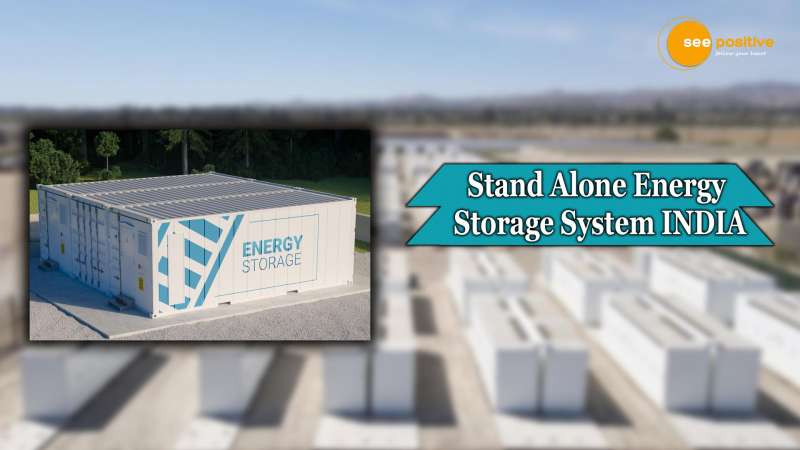

HIGHLIGHTS:
- The draft policy on energy storage systems aims to encourage the development of large-scale storage systems in India.
- The policy also aspires to develop a technology-neutral storage system in the electricity value chain at the generation, transmission, and distribution levels.
- The ESS developer will be awarded inter-state transmission system connectivity under the proposed policy under general network access (GNA).
- As a result, it will be possible to sell or buy power from anywhere in India.
What is in the News?
R K Singh, the Union Minister for Power and New and Renewable Energy, revealed the government’s intention to delicense “stand-alone Energy Storage Systems.”
Facts to Remember
People may now be able to build up their own energy storage systems (ESS).
Renewable energy developers, business, and government leaders addressed elements of a draught policy on energy storage systems.
Concerning the proposed policy
The draft policy on energy storage systems aims to encourage the development of large-scale storage systems in India.
The policy also aspires to develop a technology-neutral storage system in the electricity value chain at the generation, transmission, and distribution levels.
The ESS developer will be awarded inter-state transmission system connectivity under the proposed policy under general network access (GNA). As a result, it will be possible to sell or buy power from anywhere in India.
Significance of the energy storage system
Under the Electricity Act, energy storage systems (ESS) will be an integral part of the power system. Electrical generating firms, distribution companies, grid operators, and other actors in the electricity value chain will gain from this system.
Peak shifting, ramp-up or ramp-down, peak shaving, and frequency control will all be made easier in the system. It will also improve the efficiency of the transmission system.
This technology is critical for a smooth transition from coal to renewable energy sources, which will result in a cleaner environment. The renewable purchasing requirement will include storage (RPO).
Renewable purchase obligation (RPO)
ESS Quantum will be counted as RPO for storage purposes when combined with round-the-clock (RTC) renewable energy. ESS will also receive renewable energy certificates (RECs).
Electricity sales
Open competitive bidding, power exchanges, or tariffs set under Section 62 of the Electricity Act can be used to sell electricity from storage and to sell or lease storage space.
Transmission costs for RE will be eliminated as per policy, both when charging the storage and when selling the stored RE.
The energy transformation in India
India has made preparations for the transition from fossil fuel to non-fossil fuel energy systems. By 2030, it wants to cut GHG (carbon dioxide) emissions by one billion tonnes. India will install a total of 500 gigawatts (GW) of non-fossil fuel capacity to achieve this.


